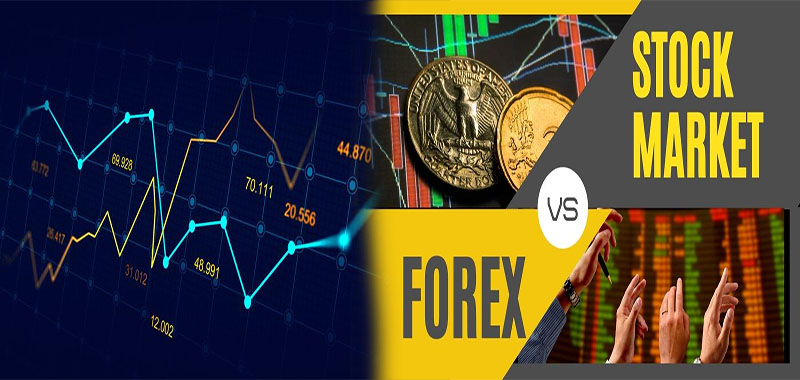Whether you are interested in trading stocks or forex, you may be wondering which the best market for you is. While each of these markets has their advantages and disadvantages, there are some key factors to consider before you decide which is the best for you.
Open 24 hours a day
Typically, the Forex or stock market is open 24 hours a day. But, the time of day varies depending on where you are.
The Forex market is a global market. It is a decentralized system that consists of a network of financial institutions, brokers, and other participants. It uses electronic communication networks to trade. There are several different sessions of trading, and the currency prices tend to fluctuate in small increments.
The currency is used for international trade, and central banks depend on it to run efficiently. There are dozens of currencies traded in the forex market. Traders must execute large trades to make a profit.
Volatility
Investing in volatile markets can be a risky venture, but it can also be profitable. If you have a strategy and plan, you can take advantage of the volatility.
Volatility in the market can be caused by an ongoing conflict, such as a trade war, or by a major shift in investor sentiment. These factors can amplify emotions such as fear or greed, thereby weakening a long-term investment strategy. Traders should be choosy when they open trades and should not be overconfident. Experienced traders should be able to stay focused, track their trades and make quick changes in direction.
Liquidity
Buying and selling assets is much easier when the market is liquid. If you want to trade stocks and forex, you need to know how to gauge the liquidity of the market you are trading in.
Liquidity is the ease of selling and buying an asset, which can be a stock, currency or a real-life asset. When you see lots of price ticks and trade volume, you have a high level of liquidity.
Similarly, a low number of price ticks means a low level of liquidity. The best way to figure out what the liquidity of a certain market is is to monitor the first and last trading hours of each session.
Regulation
Regulatory agencies and regulators are responsible for regulating and enforcing Forex and stock market activities in their respective countries. Regulations are a means to safeguard investors from fraudulent practices and ensure that fair operations take place. They also seek to keep firms in check, and they use enforcement powers to prevent fraud, misconduct, and illegal activity.
In the United States, the Commodities Futures Trading Commission (CFTC) oversees all foreign exchange brokerage companies. The CFTC enforces strict financial standards and protects the public from fraud. Its special task force combats currency-related swindles. Its regulations encourage efficiency and competitiveness.
Leverage
Using leverage when trading forex or stock market can be a powerful tool to make your money go further. However, it is important to learn how to use it properly.
While it can help you increase your profits, it can also magnify your losses.
The best leverage for your particular trading strategy should be based on your level of experience and the amount of capital you have to work with. If you are just starting out, you should probably look into a lower-leverage strategy.
In addition to allowing you to trade more positions, the best forex or stock market leverage will help you take advantage of the smallest price movements. For example, if you have $1 in your account, you can open a position for $100.
Exchange limits
Depending on your trade size and style, the forex and stock market can be a frenzy. The best way to survive the melee is to arm yourself with the appropriate trading tools. A good trading strategy will be the foundation upon which your trading piques will build. Hence, the best way to make the most of your trading days is to devise a trading strategy that will allow you to leverage the strengths of your trading partners and avoid the pitfalls of the unforgiving trading environment. The following strategies are a must: stipulating a trade plan that allows for short and medium durations of trading, instituting a trading calendar to reduce the risk of missed trades and stipulating a trading schedule that ensures trades are made on the right days of the week.











